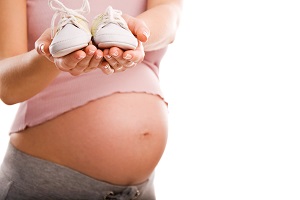A study by the Universities of New Mexico and Göttingen suggests that stress in pregnancy affects the weight of the child at the time of delivery. The discovery follows a series of other research, focusing on the role of stress in fetal development.
According to the researchers, the pregnancy phase is also decisive in which the highest levels of stress are recorded. In the last stages of pregnancy, stress pushes the woman to invest less energy in the fetus. This causes a slowdown in development, which results in a lower weight of the child both at birth and in the first months. Once the baby is weaned, however, he starts growing normally.
Prenatal stress is far more harmful in the early stages of gestation than the fetus is still developing. In these months, it can push the fetus to develop faster to survive a reduced life expectancy. This has negative consequences even after giving birth. The fetus developed in serious stress situations, in fact, will grow faster than the peers even once born. The finding could explain why cases of premature menarche are more common among poor families.
Stress during the early stages of gestation also increases the risk of obesity. Once the individual is independent of the mother, the organism still maintains a rate of accelerated development. This translates into metabolic problems and sometimes into obesity. In some cases the consequences also affect the psychological sphere of the child.
Source: unm.edu
















